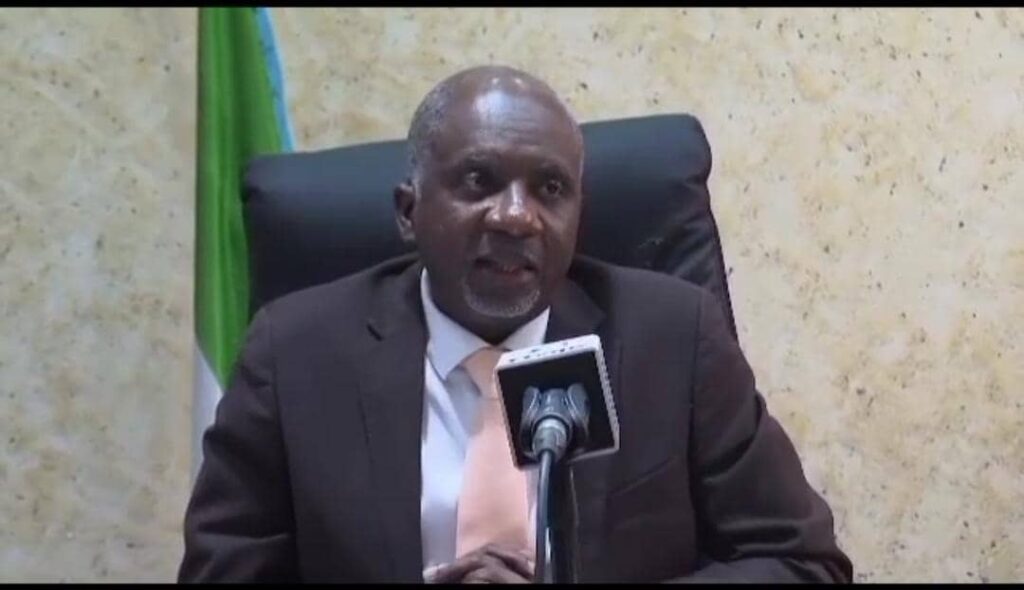A bombshell has hit Equatorial Guinea as Baltasar Ebang Engonga, the head of the nation’s National Financial Investigation Agency (ANIF), finds himself in hot water following the discovery of hundreds of explicit videos allegedly featuring him with various high-profile women. Known for being one of the strictest enforcers of financial regulations in the country, Engonga’s image has taken a nosedive as authorities look into the recently surfaced videos, which paint a very different picture of the once-respected official.
A Shocking Discovery in the Heart of an Investigation

The scandal unfolded during a routine fraud probe that included a search of Engonga’s office, where investigators stumbled upon a surprising find: over 300 intimate videos stored on his office computer. The footage allegedly includes his interactions with a range of powerful women, including his own brother’s wife, a cousin, and, in a stunning twist, a relative of the nation’s president. Many are calling it one of the biggest scandals in Equatorial Guinea’s recent history, sparking intense debate and anger within the country.
Reactions and a Swift Government Response
News of the videos spread quickly, igniting a firestorm in Equatorial Guinea’s media landscape and prompting questions about ethical standards within the government. Vice President Teodoro Nguema took to social media to address the issue head-on, condemning Engonga’s actions and underscoring that government offices are solely for official work, not personal pursuits. Nguema went further, promising stricter oversight to prevent similar situations in the future, vowing that any government employee caught violating these standards would face immediate disciplinary action, including termination.
Social Media Reactions and Global Comparisons

With the scandal making its way onto social media, discussions have even reached audiences in North America, where people are drawing parallels to recent allegations against other public figures. Engonga’s situation has been likened to high-profile cases abroad, including accusations against well-known entertainers and business moguls. These comparisons highlight a disturbing trend of personal scandals casting long shadows over public figures and their legacies, especially among officials in developing nations.
Engonga’s Silence as the Nation Awaits
Meanwhile, Engonga has remained silent, neither confirming nor denying the allegations or offering any explanation. Given his influential role and family ties, many wonder if he will come forward to defend himself or if he’ll attempt to ride out the controversy in silence. For a man known for enforcing strict financial laws, the situation is a dramatic reversal, leaving a lasting stain on his career and casting doubt on his reputation as a trusted leader.
Scandals in Public Office – A Growing Pattern?
The situation has sparked broader conversations around the role of power in fueling personal scandals. In recent years, similar stories have emerged from Nigeria, Kenya, and other nations, often involving high-profile officials or wealthy individuals whose personal decisions threaten to tarnish not only their reputations but the credibility of the offices they represent. This latest scandal underscores the need for transparency and ethical accountability, especially among those entrusted with significant public responsibilities.
While the scandal has deeply embarrassed the government, it has also brought a renewed focus on ethical standards for public officials. In his message, Vice President Nguema emphasized the importance of professionalism, declaring that “respect and integrity” are essential in government. Equatorial Guinea’s leaders hope this incident will serve as a wake-up call, creating a more accountable environment where officials are held to the highest standards.
The public and media alike are waiting for the next move in this unfolding drama. Whether Engonga addresses the allegations or remains silent, this scandal has already left a lasting impact, reminding us that integrity in public office is not just a requirement but a responsibility.
READ ALSO NOW:

